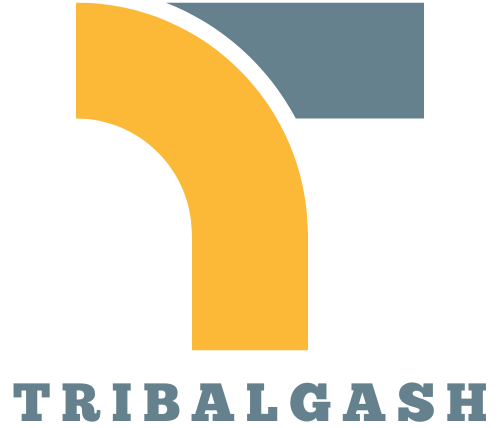In today’s fast-paced world, career development isn’t just a buzzword; it’s a necessity. It’s like having a GPS for your professional journey. Without it, you might end up lost in the maze of job titles and endless meetings that could’ve been emails. Whether you’re just starting out or looking to level up, understanding career development can transform your work life from “meh” to “wow!”
Table of Contents
ToggleUnderstanding Career Development
Career development plays a crucial role in navigating professional trajectories. It involves learning, skill enhancement, and strategic planning aimed at achieving personal and professional goals.
Definition of Career Development
Career development refers to the ongoing process of managing one’s work life. This concept encompasses various activities such as setting career goals, acquiring new skills, and seeking opportunities for growth. Professionals often engage in formal and informal learning experiences to refine their expertise and broaden their horizons. Resources like mentorship programs and workshops significantly contribute to this journey, providing guidance and knowledge.
Importance of Career Development
Career development holds immense importance in today’s competitive job market. It enhances job satisfaction by aligning individuals’ skills with their aspirations. Active participation in career development equips professionals with necessary tools to adapt to changes in their industries. Investing time in this process increases employability and paves the way for promotions and leadership roles. Employers also benefit, as a workforce invested in their growth typically results in higher productivity and morale.
Key Components of Career Development
Understanding the key components of career development helps professionals navigate their paths effectively. Each component plays a vital role in achieving career success.
Self-Assessment
Self-assessment involves evaluating one’s strengths, weaknesses, interests, and values. Professionals gain clarity about their skills and preferences through introspection and feedback. Tools such as personality tests or skills inventories can aid in this process. Engaging in self-assessment encourages individuals to make informed decisions about their career choices. Identifying specific areas for improvement allows for targeted development. This foundational step sets the stage for effective career progression.
Goal Setting
Goal setting defines a professional’s aspirations and outlines a path to achievement. Clear, measurable goals enhance motivation and focus. Setting both short-term and long-term goals ensures a balance between immediate tasks and future aspirations. Individuals should align their goals with personal values and market demands for optimal relevance. Regularly reviewing and adjusting these goals fosters adaptability in a changing landscape. Establishing deadlines for achieving goals promotes accountability and a sense of urgency.
Skill Development
Skill development encompasses acquiring and refining abilities pertinent to one’s career. Engaging in various learning experiences—formal education, workshops, or online courses—supports growth. Professionals must stay informed about industry trends and emerging skills to maintain competitiveness. Networking opportunities, such as mentorship or professional associations, further enhance learning. Continuous skill enhancement not only improves job performance but also opens doors to new opportunities. Focusing on both hard and soft skills ensures a well-rounded professional profile.
Stages of Career Development
Career development involves several critical stages that help individuals progress effectively in their professional journeys. Each stage has specific characteristics and goals that contribute to overall career growth.
Exploration Stage
In the exploration stage, individuals assess their interests and values to identify potential career paths. This phase involves researching different industries, job roles, and educational requirements. Professionals might engage in internships or volunteer experiences to gain hands-on exposure. Networking becomes essential, as meeting industry professionals can provide valuable insights. Engaging with mentors assists in mapping out possible career directions while building confidence in decision-making.
Establishment Stage
The establishment stage focuses on securing a position within a chosen field. Professionals in this phase typically seek stability and aim for career advancement through performance and skill enhancement. Setting clear goals remains crucial, as individuals strive for promotions or increased responsibilities. Continuing education plays a significant role, with many pursuing certifications or additional degrees to improve their qualifications. Building a personal brand and creating a strong professional network also enhance visibility and growth opportunities during this phase.
Advancement Stage
During the advancement stage, individuals aim to reach higher levels within their careers. This phase emphasizes leadership development, strategic networking, and seizing new opportunities. Professionals often take on management roles, guiding teams and driving organizational success. They may pursue advanced training programs or leadership workshops to strengthen their skill sets and adaptability. Establishing a reputation as an expert in their field significantly aids in career progression, whether seeking promotions or exploring new, challenging roles.
Strategies for Effective Career Development
Gaining clarity on career development involves employing specific strategies that enhance professional growth. Implementing these strategies ensures individuals remain competitive and fulfilled in their careers.
Networking Opportunities
Engaging in networking activities opens doors to new career prospects. Connecting with industry professionals through events, conferences, and online platforms fosters valuable relationships. Exploring LinkedIn groups or local professional organizations provides diverse networking opportunities. Building a strong network often leads to referrals and collaborations that can accelerate career advancement. Utilizing informational interviews increases awareness of industry trends, offering insights into potential career paths.
Continuous Education
Investing in continuous education plays a crucial role in career development. Pursuing relevant courses, certifications, or workshops enhances skill sets and knowledge bases. Many online platforms offer flexible learning options, accommodating various schedules and preferences. Staying updated with industry advancements through educational resources ensures individuals remain relevant. Attending seminars and webinars presents chances to gain insights from experts, further enriching one’s educational journey.
Seeking Mentorship
Finding a mentor significantly influences career trajectories. Establishing a relationship with a mentor provides guidance, support, and insights into industry best practices. Often, mentors share personal experiences and advice that can accelerate learning. Exploring opportunities in formal mentorship programs or seeking mentors through professional networks fosters meaningful connections. Regular check-ins with mentors help in setting and achieving career goals, enhancing overall career development.
Career development is a vital aspect of navigating today’s dynamic job landscape. By actively engaging in self-assessment and goal setting, individuals can align their skills with their aspirations. This proactive approach not only enhances job satisfaction but also opens doors to new opportunities.
Employers also benefit from a workforce committed to growth, leading to increased productivity and morale. Investing in continuous education and networking can significantly impact professional trajectories. Ultimately, embracing career development empowers individuals to take charge of their paths and achieve long-term success in their chosen fields.









